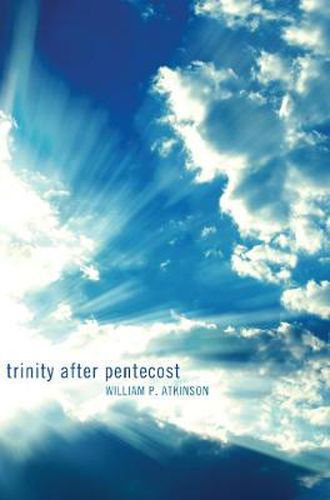Readings Newsletter
Become a Readings Member to make your shopping experience even easier.
Sign in or sign up for free!
You’re not far away from qualifying for FREE standard shipping within Australia
You’ve qualified for FREE standard shipping within Australia
The cart is loading…






This title is printed to order. This book may have been self-published. If so, we cannot guarantee the quality of the content. In the main most books will have gone through the editing process however some may not. We therefore suggest that you be aware of this before ordering this book. If in doubt check either the author or publisher’s details as we are unable to accept any returns unless they are faulty. Please contact us if you have any questions.
This book views the triune God from a Pentecostal viewpoint. In so doing, it offers a fresh articulation of the theology of the Trinity that starts with Pentecost and with the Spirit. It concludes that the Trinity cannot be adequately appreciated using any single model–whether social, modal, or psychological. Instead, it presents three models–relational, instrumental, and substantial–that need to be held in paradoxical tension with one another. Of these, the relational is the foremost. Pentecost offers rich potential for seeing these relations between the Father, the Son, and the Spirit as a dynamic reciprocal dance in which each person empties self in order to exalt the other.
$9.00 standard shipping within Australia
FREE standard shipping within Australia for orders over $100.00
Express & International shipping calculated at checkout
This title is printed to order. This book may have been self-published. If so, we cannot guarantee the quality of the content. In the main most books will have gone through the editing process however some may not. We therefore suggest that you be aware of this before ordering this book. If in doubt check either the author or publisher’s details as we are unable to accept any returns unless they are faulty. Please contact us if you have any questions.
This book views the triune God from a Pentecostal viewpoint. In so doing, it offers a fresh articulation of the theology of the Trinity that starts with Pentecost and with the Spirit. It concludes that the Trinity cannot be adequately appreciated using any single model–whether social, modal, or psychological. Instead, it presents three models–relational, instrumental, and substantial–that need to be held in paradoxical tension with one another. Of these, the relational is the foremost. Pentecost offers rich potential for seeing these relations between the Father, the Son, and the Spirit as a dynamic reciprocal dance in which each person empties self in order to exalt the other.